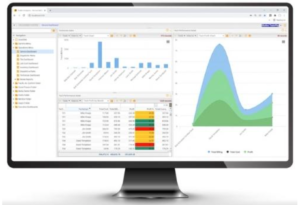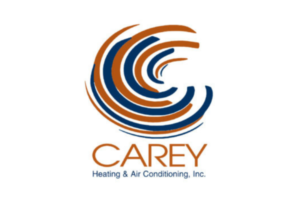Demand for HVAC services is projected to grow by as much as $20 billion from now until 2030, which means it’s a great time to start an HVAC business. There’s a lot of detail to manage when you start an HVAC business, but your attention to detail will prove to be the best path to growth and success for your new service company.
We’ll walk you through the key steps and strategies for how to start an HVAC business. Read on for step by step details and tips like creating a complete business plan, hiring the best HVAC technicians, marketing your services, and much more!
Develop an HVAC Business Plan
Start by building a foundation for your success. Doing the work to develop an HVAC business plan forces you to identify the key members of your team, the strengths and services you will market to your customers, your ideal customer, your costs, and the prices for your HVAC services.
Your HVAC business plan also outlines your goals. It’s helpful to think of your business plan as a living document, which should be revised every other month, and definitely every year so that your planning continues to grow with you. Here are the elements to include in your HVAC business plan.
- Cover page – Here’s where you unveil your logo and business name, along with your contact information, the physical address for your business, and a list of the key people who will be on your team. There are plenty of free tools to help you design your own logo including, Canva, Adobe, and Shopify.
- Executive Summary — This is a broad overview of your business plan. Here’s where you’ll put your mission statement, identify the goals and objectives for your business, and outline your competitive advantages compared with other HVAC businesses.
- Business Overview — In this section, you’ll write a detailed plan for how your HVAC business will operate. You should summarize your vision for the business; list the types of HVAC services you plan to offer and how frequently you would provide those services and identify how to maintain your customer relationships. There should also be some financial details, including identification of the company’s ownership for tax purposes; a listing of the value of your assets like office space and company vans; your estimated start up costs which would include spending on equipment and materials you’ll need to get your business off the ground like inventory costs, uniforms, and HVAC service software (LINK); long term assets you own; and short term assets like tools and expenses for storage.
- HVAC Services – List of the HVAC services you plan to offer, and which are possible based on your existing equipment, what you can afford, and the services that are in demand in your service area.
- Market Analysis or Assessment — Identify the needs of the customers in your area and describe how your business meets those needs. This portion of your business plan can also identify your ideal customer in detail: age, income, economic status, and what’s important to them. The other portion of your market analysis should be a clear view of what your competition is doing: their pricing, hours of service, and types of HVAC services, especially services that overlap your own proposed HVAC services, and how your HVAC services could compete with your competition.
- Business Strategy — Use the information you’ve already included in your business plan to guide your strategy for pricing your HVAC services. Consider the following elements in your pricing strategy: profit goals, taxes, and overhead costs like office rental and labor rates for your area.
- Summary — Here’s where you outline your plans to reach your sales goals. The summary explains how you will win customers and keep them coming back to you. In this section you can provide details for your digital marketing strategy including your approach to social media, advertising in Neighbourhood forms, and more. Check out this article on How to Create a Digital Marketing Strategy for more information.
- Management Summary — Typically, labor costs amount to almost 30% of HVAC company costs, and that means it’s essential to lay out how and what to pay your team and yourself. In this section, you’ll include your calculations for your salary, the number of employees you’ll hire to reach your goals for providing services within your target geography, and the number of jobs you expect to complete in a day. From there you can estimate the rate you will charge your customers for HVAC services.
- Financial Plan — The final section of your business plan is the key to creating an HVAC business that will survive and thrive. For the financial section of your plan, it’s best to meet with a trusted financial advisor even though it will add to your start up costs. A skilled advisor can help you with the following financial documentation. You’ll want to include a proposed balance sheet, your sales forecast, strategies for marketing and selling your HVAC services, an expenses budget, a breakeven analysis, projected cash flow, and your project profit and loss statements.
Hire and Support your HVAC Workforce
HVAC Salaries
Choosing what to pay yourself and your technicians is a decision that will help keep your HVAC business competitive and provide a strong foundation for profitable growth. You’ll also want to ensure that your salaries are competitive for the area you serve so that you attract skilled technicians who will deliver service that delights your customers.
What do HVAC Owners Earn?
According to ZipRecruiter, the national average for HVAC business owner salaries is $56,761, with variances depending on what part of the country you live in, and how you market your company.
Top HVAC business owners reported salaries of $85,000.

After completing your HVAC business plan, you should have identified prices for your HVAC services that provide you with cash flow to pay a competitive salary for your techs. According to the U.S. Bureau of Labor Statistics demand for HVAC Mechanics and Installers is expected to grow 5% between 2020 and 2030 with a median salary of $48,630 in May 2021. AS your HVAC technicians gain experience that salary scale should increase.
Hiring HVAC Technicians
When you’re starting an HVAC business, an important key to your success is hiring top quality HVAC technicians. Here are three tips for recruiting excellent ambassadors for your company.
- Make your company a place where your employees are happy to come to work. Excellent companies are places that attract the best technicians and motivate them to stay and grow with you. This means having a company culture where everyone on your team knows how to answer the phone, communicate with customers, and treat one another.
- Give your employees incentives to recommend great HVAC technicians. One great employee likely knows some other people who would be assets for your team. And, if you hire people they like, everyone is more likely to stay with your business.
- Make your application process straightforward and simple. Make your applications mobile friendly! Ask for the minimum requirements such as driver’s license and completion of training or licensing program.
Mentoring Your Employees
When you’re starting an HVAC business, an important key to your success is hiring top quality HVAC technicians. Here are three tips for recruiting excellent ambassadors for your company.
- Make your company a place where your employees are happy to come to work. Excellent companies are places that attract the best technicians and motivate them to stay and grow with you. This means having a company culture where everyone on your team knows how to answer the phone, communicate with customers, and treat one another.
- Give your employees incentives to recommend great HVAC technicians. One great employee likely knows some other people who would be assets for your team. And, if you hire people they like, everyone is more likely to stay with your business.
- Make your application process straightforward and simple. Make your applications mobile friendly! Ask for the minimum requirements such as driver’s license and completion of training or licensing program.

Choose the Best HVAC Software for Your Business
As the owner of an HVAC service business, you wear many different hats. You’ll want to stay on top of scheduling and dispatching technicians for service calls, keep up to date on your invoicing and accounting so that you keep cash flow positive, and maintain great relationships with your customers.
Standardize Processes
Consistency is a winner for HVAC businesses. To operate optimally, you should standardize repeat processes and put these repeat processes in writing. This ensures every process from how your dispatcher answers the phone, to how your technicians write a work order, to how your accounting department processes an invoice, are all done the same way every time. And, whenever possible, repeated tasks should be automated.
One of the most important metrics for HVAC businesses is managing cash flow. That means you need to closely monitor all your invoices. Ensure you have solid processes for getting invoices to your customers quickly, that your payment terms are clear, and that you keep your costs low wherever possible.
Choose Software Made for Service Businesses
Growing HVAC companies may find their business has become too complex to manage with spreadsheets alone. Using HVAC software can help you grow your business with features that are made for service businesses.
Integrated HVAC software provides all the tools you need to dispatch calls, manage inventory, keep on top of your invoicing, and stay connected with your customers.
When you invest in HVAC software, make sure it checks the following three boxes.
- Good Mobile Tools – Your team is always on the go and your software should be able to travel with them so they can clock in, access customer data, and locate materials from your inventory.
- Powerful Invoicing and Tracking Features— Software that helps your techs complete paperwork and invoice customers from the field is essential for HVAC companies. It’s also important to be able to track your technicians so that you can schedule them efficiently and reduce fuel costs.
- Comprehensive Database & Easy to Use Interface – Your HVAC software should help you use the data you collect at each service call to efficiently manage your materials and create valuable service records that will help you be more responsive to your customers.
Bonus: HVAC reporting and Dashboards — Use your HVAC business software to identify customers who need to renew their service agreements, or every customer that has equipment that’s about to come out of warranty.
Choose all in one HVAC business software so that you can work more efficiently with one source of information. You’ll save time and be able to standardize processes and handle your data more productively.
HVAC Contractor Marketing Guide
Now that you have a business plan, employees to serve your customers, and software to run the HVAC business, you’ll need customers to serve. Here are a few suggestions for planning your HVAC contractor marketing.
The internet is one of the most important marketing tools in your toolkit. Many of your customers will find you using an online search, which makes an HVAC business website a necessity. If you don’t have the skills to create your own website, there are many easy to use platforms like Wix, Squarespace, and Shopify that can help simplify the process. Depending on your expertise and budget contracting out your website creation could be money that’s well spent. (Just don’t forget to include this expense in your business planning).
- Create a clear, easy to read HVAC company website that includes your phone number and a contact us form that is visible when you log on using a browser or a mobile device.
- As soon as you have customers, ask them for reviews you can add to your website.
- Include friendly photos of your employees.
- List the areas where you provide HVAC services.
- Tell customers what makes your HVAC business special, such as cost savings or extended warranties.
- Clearly describe what payment options you accept and note whether you offer financing.
Search Engine Optimization
Here’s another internet HVAC marketing strategy that can make your business stand out. Search Engine Optimization (SEO) is the process of improving your website to make it more visible when potential customers use search engines to find your HVAC services. Using key search terms throughout your website helps customers find what they are looking for when they search on Google or other search engines. It may be useful to hire an outside marketing agency to help you determine the best keywords and key phrases for your business. Tools like Moz, Ubersuggest, Answer the Public, and Google’s Keyword Planner can also be valuable when researching keywords.
Pro Tip: Make sure you have your city or region as one of your keywords. For example: Springfield Heating and A/C Repair.
Extend Your HVAC Digital Marketing with Social Media
Once your website is up and running, you can extend your online reach by connecting directly with your customers on social media.
- Create social media profiles where you can post before and after photos of your service work. Share endorsements from your happy customers. Facebook, Instagram, TikTok, and LinkedIn all allow you to create business pages for free.
- Add your business profile to Google and make sure you’re visible on Google Maps so you can show up on searches for “HVAC companies near me.” It’s free and will also allow you to collect online reviews and provide potential customers with important information such as your business hours and phone number.
Get More Customer Leads with Email Campaigns
Email is one of the most effective and efficient HVAC marketing tools for communicating with potential customers. Using HVAC business software, you should be able to create customer lists organized by zip codes or by the date of their most recent service. Send an email that says: “We miss you,” to customers who haven’t called in recent months. Or send a follow up reminder to customers who never replied after asking for an estimate. You could offer a discount on HVAC services to owners of an apartment complex.
HVAC Referral Program
Satisfied customers are the best marketing spokespeople. Offer your customers an incentive to recommend your business when their referral makes a purchase, such as a gift card. Referrals can also come from relationships you build with local contractors and apartment and real estate management companies. Join your local business association to meet people who can connect you with potential customers for your business.
Run a Review Campaign
Positive reviews from previous customers help potential customers trust your HVAC business more. Ask happy customers to leave reviews on Google for your business. It’s free marketing for your HVAC services, and positive reviews of your business can really boost your reputation because customer reviews inspire other potential customers to trust your business.
Keep Your Customers Coming Back
The best way to make sure your customers are loyal, repeat HVAC customers is to deliver great service that they can trust. Here are some ways to build trust with your customers and keep them satisfied.

- Communicate Clearly — Make sure you understand your customer’s issue. Listen carefully to their needs and explain the steps you intend to take to solve their issue. Your explanation should be in simple, easy to understand language, especially when you communicate an estimate because most of your customers don’t understand all the details about how their HVAC equipment works.
- Be Responsive — Set a policy to return your customers’ calls as soon as possible, and make sure your dispatchers stick to the rule. No customer wants to be ignored. Using powerful dispatch software means you can identify the nearest skilled technician and easily schedule a visit to address your customer’s issue within a reasonable time.
- Promise Top Customer Service and Deliver It — Once the work is complete, verify that your customer is satisfied. For your customers with HVAC service agreements, you’ll need to deliver prompt service when it’s due and properly repair any equipment that’s broken. With HVAC software, you can manage your customers with service agreements, track the warranties for their equipment, and potentially even offer discounts and incentives to reward long term customer relationships.
Conclusion
With HVAC services in demand and relatively affordable startup costs, it’s a great time to launch your HVAC business. Your key requirements are a detailed HVAC business and financial plan, qualified technicians who want to grow with you, and a focus on customer service. Using top HVAC business software will help you deliver superior service that will keep your customers happy and loyal while helping you manage your invoicing and keeping cash flow positive.
Other Resources
- Make sure you also look into your State’s licensing guidelines for HVAC contractors to get your official paperwork in order.
- Check out this valuable HVAC news resource, and AHR is the annual HVAC industry conference. You can also view videos anytime from the HVAC School for learning and development.




